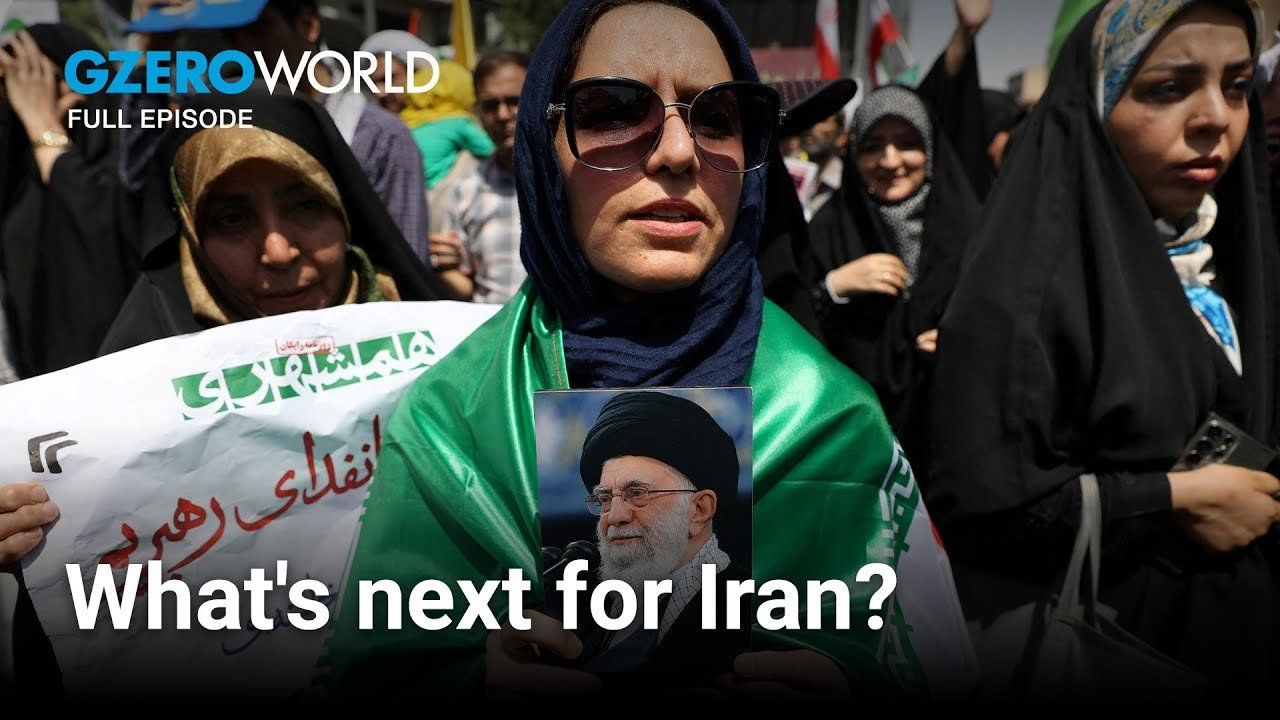GZERO World with Ian Bremmer
Iran was the clear loser of its war with Israel and the US. So, what happens next?

- YouTube

Less than a month after Iran’s stunning defeat in a brief but consequential war with Israel and the United States, Prime Minister Benjamin Netanyahu has emerged politically stronger—at least for now. But as New York Times columnist Thomas Friedman notes to Ian in the latest episode of GZERO World, that boost may be short-lived unless Bibi finds a credible way to resolve the crisis in Gaza. “The people who won this war for Israel...were, for the most part, the very same people who were in the streets of Israel for nine months against Netanyahu and his judicial coup,” he says. That internal contradiction, he argues, is likely to reassert itself as the conflict continues.
Friedman warns that Netanyahu still faces the same three unappealing choices in Gaza: permanent occupation, rule by local warlords, or a phased withdrawal in partnership with an Arab-led peacekeeping force and the Palestinian Authority. If he were to choose door number three, then Bibi would win the next five elections, Friedman says. But doing so would likely require pressure from Washington. With Trump now touting his foreign policy win in Iran, Friedman believes the moment is ripe for the US to push hard for a ceasefire in Gaza.
The conversation also explores the uncertain road ahead for Iran’s leadership. In the wake of military humiliation, Friedman anticipates an internal debate over whether to double down on nuclear ambitions or seek reintegration into the international community. “All real politics in the Middle East happens the morning after the morning after,” he says. As both Israel and Iran attempt to move forward, Friedman suggests the real reckoning—for governments, publics, and the global order—may just be beginning.
New digital episodes of GZERO World are released every Monday on YouTube. Don't miss an episode: subscribe to GZERO's YouTube channel and turn on notifications (🔔).
For many in Iran, it’s a waiting game for how long Ayatollah Khamenei has left to live.
In a 30-minute call on Thursday, President Donald Trump reportedly told Ukrainian President Volodymyr Zelensky he wants to end the war with Russia as soon as possible — aiming for a deal by summer, but ideally within weeks.
Former British ambassador to the U.S. Peter Mandelson leaves his residence after he was released following his arrest by London police on Monday on suspicion of misconduct in public office, following the release of U.S. Justice Department files linked to the late financier and convicted sex offender Jeffrey Epstein, in London, Britain, February 26, 2026.
The ghost of Jeffrey Epstein continues to haunt the world.
Think you know what's going on around the world? Here's your chance to prove it.